Top 10 Countries With The Best Healthcare System and Why
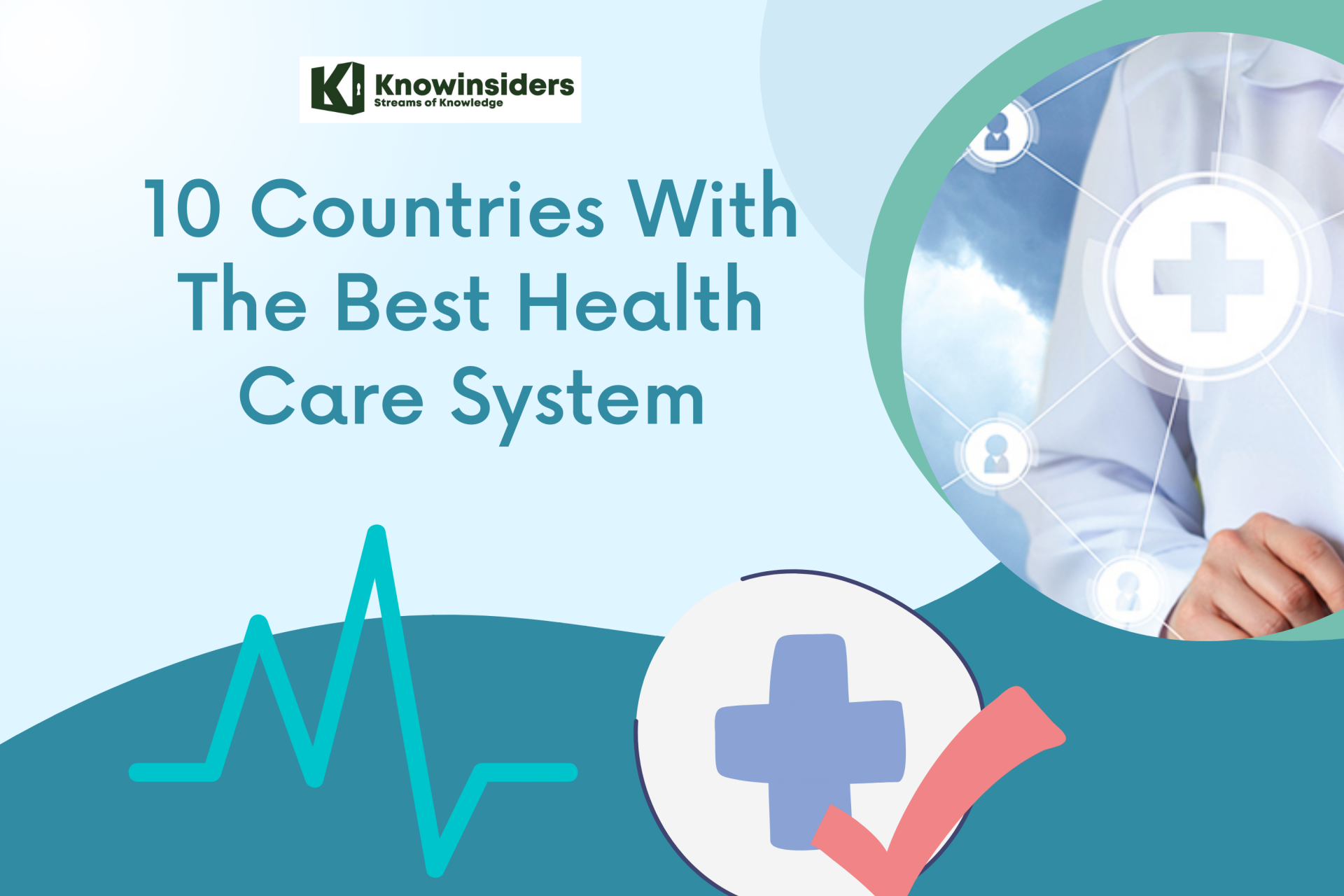 |
| Best Health Care System. Photo: KnowInsiders |
Countries around the world apply different approaches to provide public healthcare. Some rely on the government support, as in a single-payer approach. Other nations depend on private insurers and a third group of countries, such as the United States, have a mixture of both. The quality and efficiency of a country’s healthcare system can have a massive impact on its citizens’ quality of life.
Top 10 Countries with Best Health Care System: With the onset of the corona pandemic, all the governments in the world made concentrated efforts in strengthening and improving their country's health system. However, health facilities were inadequate, and many could not avail benefit of the health facilities during the pandemic. Every country has a different health care infrastructure and different health care facilities.
What Is Healthcare?
Healthcare can be understood as the preservation and improvement of health through the prevention, diagnosis, and treatment of injuries, diseases, and any other physical or mental impairment. It includes different kinds of medical attention (physical therapy, nursing, psychology, among others) and the method by which it´s provided varies depending on the country, even municipality.
There are several economic and social elements that have a significant impact on any given healthcare system and this is largely due to the goals generally set for health systems. Here, we´ll mention three essential goals:
Ensure that the population will access the health services provided by certified professionals and qualified attention.
Achieve the right level of responsiveness of health assistance to the real expectations of the population. This means investing in the structural and institutional dimensions of the health system.
The fairness and equity on the delivery of healthcare in a way that poor households don’t carry with a higher expense than they can afford.
Now, these are not the only factors that need to be considered to evaluate the right functioning of a healthcare system. The World Health Organization states that a high-quality healthcare system must also include well-maintained facilities, provide reliable information to patients, administrative efficiency, and, fundamentally, a steady financing mechanism.
So far, the importance of an efficient healthcare system has become clear. The lack of quality on it’s supply can bring unfavorable consequences whereas counting with a well-developed health system can protect a population’s quality of life and even life expectancy. And this is why health systems tend to be one of the biggest concerns for policymakers. Countries have been introducing reforms in the health sector so as to improve their performance.
Types of Healthcare
Countries around the globe take vastly different approaches to providing healthcare to their population. Many developed countries have universal government-funded healthcare (also known as single-payer healthcare).
In this system, healthcare is available to all citizens regardless of their income or employment status. This system is used by countries such as Australia, Canada, Norway, Singapore and the UK.
Another popular option is to use a universal public insurance system where the government usually withholds part of workers’ wages which goes towards healthcare insurance. This system is used by China, France, Japan and South Korea among others.
Several nations, including the Netherlands and Switzerland, use a universal private health insurance system. Low-income citizens who cannot afford insurance are then subsidised by the government.
The World Health Organization’s last global report ranked these as 10 most advanced countries in medicine with best healthcare in the world:
List of 10 countries have the best healthcare system
1. France
2. Germany
3. Singapore
4. The UK
5. Australia
6. Switzerland
7. The United Arab Emirates
8. The Netherlands
9. Japan
10. Luxembourg
| Source: World Health Organization, Measuring Overall Health System Performance for 191 Countries |
*****
Which countries have the best healthcare system and why?
1. France
 |
| Photo: Our House Families |
The French healthcare system is characterised by universal coverage and government organisation. France has one of the best healthcare in the world. Statutory health insurance (SHI) was expanded to cover every citizen in 2000. Out-of-pocket payments are common for doctor’s appointments, but the government usually refunds most fees.
Ranked top by the World Health Organization’s mammoth study, France also scores well for health outcomes. This gives the European nation an edge for advancement as well as accessibility. Having some of the highest quality medical care in the world helps to give France the lowest levels of cardiovascular mortality in the OEDC.
2. Germany
 |
| Photo: WashingtonKing.com |
The Euro Health Consumer Index notes that the healthcare system in Germany is one of the most consumer-oriented systems in the EU. All workers in Germany contribute about 8 percent of their gross earnings to a non-profit insurance which is also known as a sickness fund.
There are about 130 such sickness funds that a person can choose from. Now the employer matches this contribution towards the fund. The funds extend healthcare benefits and cannot refuse membership. Medical services in the country are superlative. The country’s per capita health spends are about USD 5,551.
3. Singapore
 |
| Photo:Planet Lean |
Singapore has a worldwide effective and comprehensive medical infrastructure. The health sector of Singapore is supervised by the Singapore Government’s Ministry of Health. It is primarily a form of publicly financed health insurance and is implemented by the government, alongside a major private healthcare industry, including Medisave, Medishield Life, and Medifund. In comparison, health costs are financed by direct government grants, obligatory full savings, universal health benefits, and risk-sharing.
Singapore’s public health system is run by the government, with 32.1% of all costs charged for Healthcare out of budget. The private medical industry is also high. The nation has continued to monitor coronavirus spread by tracking and testing contacts and amid recent cases.
4. The UK
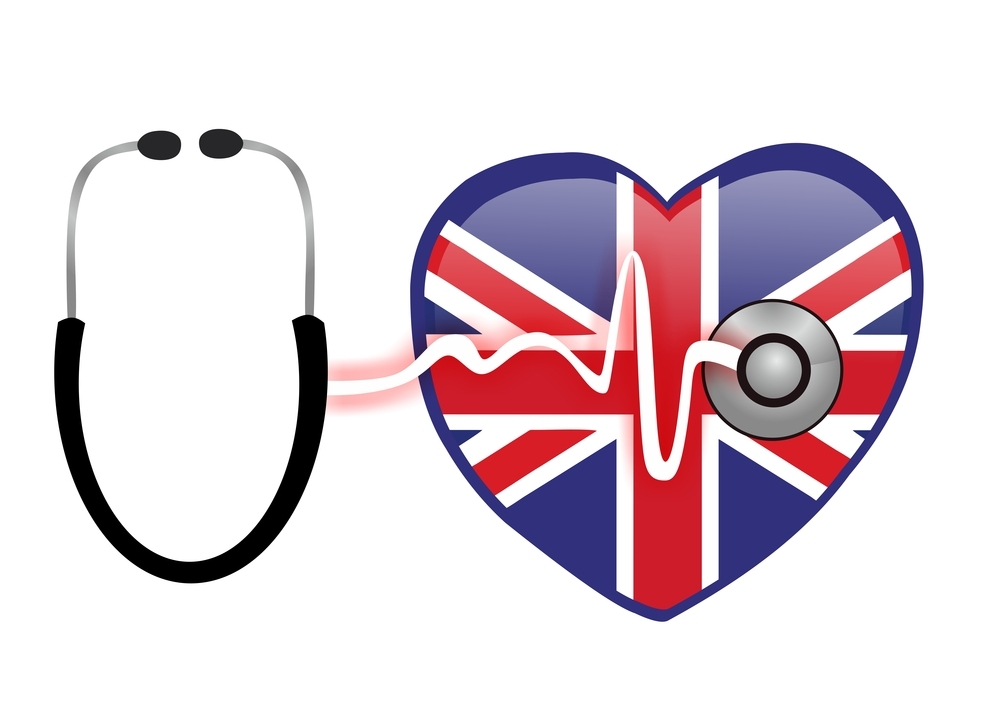 |
| Photo: Economy Watch |
UK is among those countries, where the health care system is almost entirely taken care of by the government. Most people here take advantage of government health facilities that are fully paid for by the government.
The National Health Service (NHS), the public health services in the United Kingdom provides its citizens comprehensive and universal health care free of cost. Optical and dental treatments are not covered by the NHS, though. The average UK citizen has a life expectancy of about 81 years. The country is home to exceptional medical services and professionals.
5. Australia
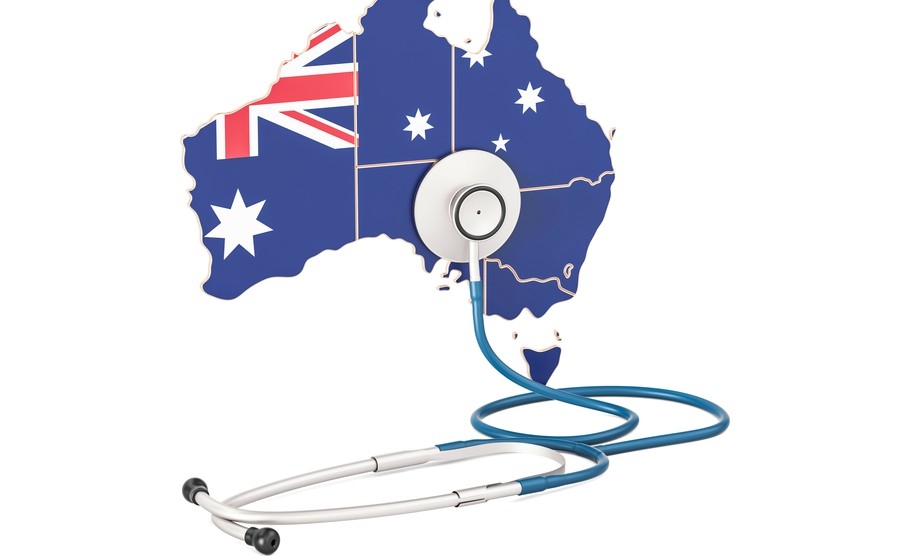 |
| Photo: RegDesk |
Australia’s healthcare system has two main parts: the public health system, and the private health system. Since 1984, Medicare has been the Commonwealth Government’s universal health insurance scheme. This provides Australian residents with free treatment in public hospitals.
The Commonwealth Fund’s 2017 study gives Australia the second-highest health system performance score – these measure care process, access, efficiency, equity and health outcomes.
Australia comes top for health outcomes, in fact. The universal Medicare system has covered the cost of public hospital stays and some other services since 1986, but outside of hospital, co-payments are common. Still, countries such as the United Kingdom, the Netherlands, New Zealand and Germany have more equitable healthcare than Australia, according to the Commonwealth Fund.
 What Is Digital Healthcare: Top Trends In The Future? What Is Digital Healthcare: Top Trends In The Future? What is digital healthcare, why is it important and how does it change the healthcare system in the future? |
6. Switzerland
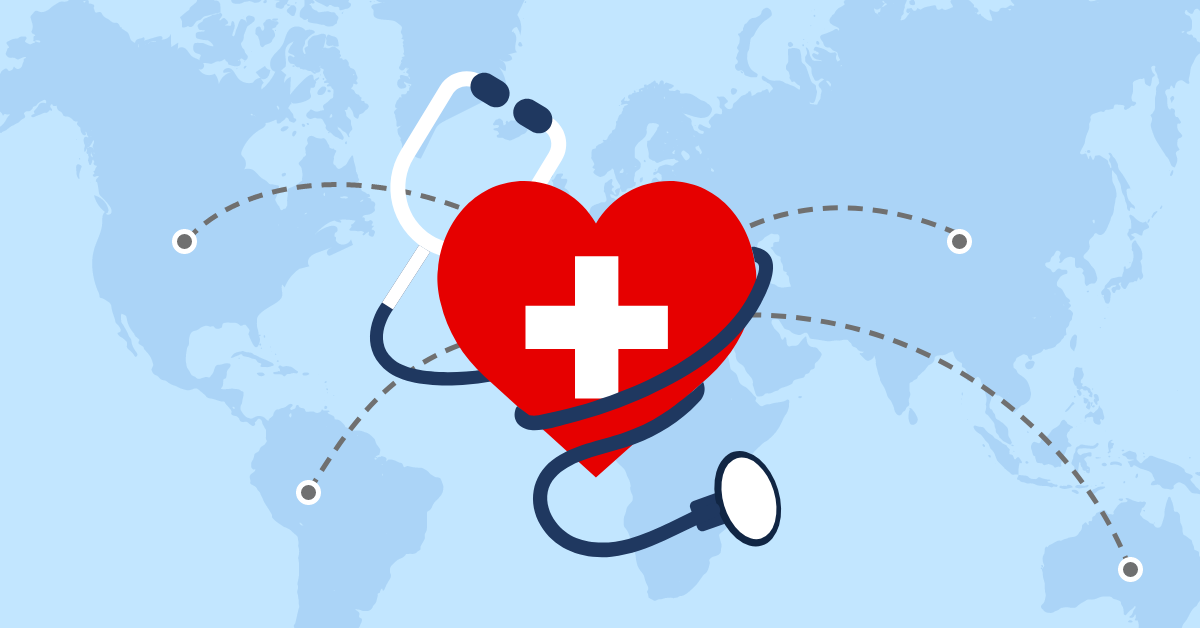 |
| Photo: European Moving |
Switzerland comes top of the Euro Health Consumer Index 2018, and it’s firmly above the eleven-country average in the Commonwealth Fund’s list too. There are no free, state-run services here – instead, universal healthcare is achieved by mandatory private health insurance and some government involvement.
In Switzerland, patients often find they’re free to choose their own doctor and specialists are easy to come by – but this comes at a cost, since healthcare expenditure is the highest in Europe.
7. The United Arab Emirates
 |
| Photo: Step Feed |
The United Arab Emirates' health care system is also among the ten best health care systems in the world. Health care facilities are provided by the government here. At the same time, the private sector is also growing fast in the health care field.
The United Arab Emirates’ medical system fell into the global spotlight due to the country’s fast COVID-19 vaccine rollout in early 2021. It’s perhaps unsurprising, then, that the kingdom enjoys some of the best healthcare in the world and best medical care in the Middle East and Asia.
Healthcare is comprehensive for Emiratis and mostly government-funded, but the private sector is growing rapidly too. State-of-the-art hospitals and clinics are continually popping up, especially in the Dubai region. Learn more about moving to and living in Dubai in 2021.
8. The Netherlands
 |
| Photo: Expatica |
The Dutch medical care system is a strong performer on the world stage – the Commonwealth Fund has ranked The Netherlands third among wealthy countries, and it came second in the Euro Health Consumer Index 2017.
All adults are required to purchase basic insurance – and can be fined if they don’t. Employer payments and taxes also help to finance healthcare in the Netherlands. The country is a strong performer in mental health – many GP practices employ primary care psychologists. In our recent research study, we asked over 1,100 expats worldwide about how the COVID-19 pandemic has affected their mental health. 38% felt the quality of their mental health has declined during the COVID-19 pandemic. Also only 10% of respondents said they felt “confident” about the professional mental health resources available in the country where they live and work.
9. Japan
 |
| Photo: LaingBuisson Newsundation |
According to the World Bank, Japan has 84 years of worldwide life expectancy and one of the world’s greatest health services providers. The government forces every Japanese resident to carry out medical insurance. Overall, the resident pays out-of-pocket just 12.8 percent of medical costs. In Japan, life expectancy and stable life expectancy are both the longest, in both men and women, as recorded in WHO reports.
Japan’s health care system delivers services, including screening, maternity care, and controlling infectious diseases, which take charge of 30% of the costs and the remaining 70% by the government. Here Patients are eligible and cannot be refused to choose doctors or institutions of their choosing. Hospitals must be operated under the statute as non-profit institutions and administered by doctors.
10. Luxembourg
 |
| Photo: Luxembourg Times |
Along with other innovative nations such as the USA, Luxembourg is often mentioned in lists of the most medically advanced countries. It’s a country that’s home to a large health technology sector that, together with its tech-literate population, makes eHealth development a priority.
Luxembourg comes 16th place in the World Health Organization’s efficiency rankings and 7th in the Euro Health Consumer Index 2018. It’s also one of the wealthiest countries in Europe, which helps – 5.44% of all employees’ gross income is deducted for healthcare.
Want to know more about how healthcare works for expats in these places? Explore our medical network to find providers.
Healthcare during pademicThe planet has seen near-universal progress in health over the past decade, with all but 12 countries seeing an improvement during that time. In particular, expansions in immunisation programmes have resulted in a greater proportion of the global population being inoculated against life-threatening diseases. This, combined with antenatal care now covering over 90% of women across the globe, has led to the improvement observed in preventative care. “There is never a good time for a global health crisis, but if there has to be one, the progress that has been made over the last decade provides emerging nations with a better context in which to tackle it.” Baroness Philippa Stroud, CEO of the Legatum Institute However, these improvements came under threat as the health of many nations were put under considerable strain due to the pandemic. Initially, a particular concern was how nations with poorer healthcare systems would cope with the virus. However, we now know that the virus disproportionately affects the elderly and those with underlying health conditions. This demographic is generally more commonly found in more developed countries. For example, the median age in Italy is 47.3, whereas the median age across Africa is around 20. Similarly, the obesity rate in the USA stands atover 40%, compared to less than 10% in Africa. As such, it is generally the health systems of more developed nations that have been in greater danger of being overwhelmed. |
What countries have the best healthcare in the world?
(Ranking by CEO World Magazine)
CEOWorld Magazine's Health Care Index "is a statistical analysis of the overall quality of the health care system, including health care infrastructure; health care professionals (doctors, nursing staff, and other health workers) competencies; cost (USD p.a.per capita); quality medicine availability, and government readiness."
Each country is given a score for each of the above factors and then a total score out of 100.
According to this index, the ten countries with the best health care in 2021 are:
South Korea
Taiwan
Denmark
Austria
Japan
Australia
France
Spain
Belgium
United Kingdom
Best Healthcare in the World 2021
(LPI = Legatum Prosperity Index)
| Country | LPI 2020 Ranking | LPI 2019 Ranking | CEO World Ranking | 2021 Population |
|---|---|---|---|---|
| Denmark | 1 | 2 | 3 | 5,813,298 |
| Norway | 2 | 1 | 15 | 5,465,630 |
| Switzerland | 3 | 3 | 18 | 8,715,494 |
| Sweden | 4 | 4 | 28 | 10,160,169 |
| Finland | 5 | 5 | 12 | 5,548,360 |
| Netherlands | 6 | 6 | 11 | 17,173,099 |
| New Zealand | 7 | 7 | 16 | 4,860,643 |
| Germany | 8 | 8 | 17 | 83,900,473 |
| Luxembourg | 9 | 9 | 634,814 | |
| Austria | 10 | 12 | 4 | 9,043,070 |
| Iceland | 11 | 14 | 41 | 343,353 |
| Ireland | 12 | 11 | 80 | 4,982,907 |
| United Kingdom | 13 | 10 | 10 | 68,207,116 |
| Canada | 14 | 13 | 23 | 38,067,903 |
| Singapore | 15 | 16 | 24 | 5,896,686 |
| Australia | 16 | 17 | 6 | 25,788,215 |
| Hong Kong | 17 | 15 | 36 | 7,552,810 |
| United States | 18 | 18 | 30 | 332,915,073 |
| Japan | 19 | 19 | 5 | 126,050,804 |
| Taiwan | 20 | 22 | 2 | 23,855,010 |
| Estonia | 21 | 21 | 32 | 1,325,185 |
| France | 22 | 20 | 7 | 65,426,179 |
| Belgium | 23 | 23 | 9 | 11,632,326 |
| Spain | 24 | 25 | 8 | 46,745,216 |
| Malta | 25 | 24 | 442,784 | |
| Slovenia | 26 | 27 | 47 | 2,078,724 |
| Portugal | 27 | 26 | 22 | 10,167,925 |
| South Korea | 28 | 29 | 1 | 51,305,186 |
| Israel | 30 | 31 | 21 | 8,789,774 |
| Italy | 31 | 30 | 37 | 60,367,477 |
| Latvia | 32 | 32 | 48 | 1,866,942 |
| Cyprus | 33 | 33 | 76 | 1,215,584 |
| Lithuania | 34 | 34 | 31 | 2,689,862 |
| Slovakia | 35 | 35 | 54 | 5,460,721 |
| Poland | 36 | 36 | 51 | 37,797,005 |
| Chile | 37 | 37 | 44 | 19,212,361 |
| Costa Rica | 38 | 38 | 50 | 5,139,052 |
| Uruguay | 39 | 39 | 39 | 3,485,151 |
| Malaysia | 40 | 42 | 34 | 32,776,194 |
| Greece | 41 | 41 | 26 | 10,370,744 |
| United Arab Emirates | 42 | 40 | 20 | 9,991,089 |
| Croatia | 43 | 43 | 42 | 4,081,651 |
| Mauritius | 44 | 45 | 1,273,433 | |
| Qatar | 45 | 44 | 33 | 2,930,528 |
| Hungary | 46 | 46 | 49 | 9,634,164 |
| Romania | 47 | 47 | 69 | 19,127,774 |
| Bulgaria | 48 | 49 | 67 | 6,896,663 |
| Panama | 49 | 48 | 56 | 4,381,579 |
| Montenegro | 50 | 51 | 628,053 | |
| Seychelles | 51 | 50 | 98,908 | |
| Serbia | 52 | 52 | 77 | 8,697,550 |
| Georgia | 53 | 53 | 79 | 3,979,765 |
| China | 54 | 54 | 46 | 1,444,216,107 |
| Armenia | 55 | 63 | 2,968,127 | |
| Bahrain | 56 | 58 | 1,748,296 | |
| Indonesia | 57 | 61 | 52 | 276,361,783 |
| Kuwait | 58 | 60 | 71 | 4,328,550 |
| North Macedonia | 59 | 55 | 2,082,658 | |
| Trinidad And Tobago | 60 | 59 | 1,403,375 | |
| Peru | 61 | 57 | 62 | 33,359,418 |
| Kazakhstan | 62 | 66 | 82 | 18,994,962 |
| Argentina | 63 | 56 | 27 | 45,605,826 |
| Thailand | 64 | 65 | 13 | 69,950,850 |
| Jamaica | 65 | 67 | 2,973,463 | |
| Oman | 66 | 62 | 5,223,375 | |
| Albania | 67 | 64 | 74 | 2,872,933 |
| Mexico | 68 | 68 | 29 | 130,262,216 |
| Belarus | 69 | 70 | 57 | 9,442,862 |
| Brazil | 70 | 69 | 63 | 213,993,437 |
| Saudi Arabia | 71 | 72 | 55 | 35,340,683 |
| Dominican Republic | 72 | 76 | 72 | 10,953,703 |
| Vietnam | 73 | 81 | 66 | 98,168,833 |
| Colombia | 74 | 71 | 35 | 51,265,844 |
| Russia | 76 | 75 | 58 | 145,912,025 |
| Bosnia And Herzegovina | 77 | 73 | 3,263,466 | |
| Azerbaijan | 78 | 91 | 86 | 10,223,342 |
| Paraguay | 79 | 78 | 7,219,638 | |
| Moldova | 80 | 83 | 4,024,019 | |
| Suriname | 81 | 79 | 591,800 | |
| Botswana | 82 | 80 | 2,397,241 | |
| Philippines | 83 | 82 | 38 | 111,046,913 |
| Sri Lanka | 84 | 77 | 40 | 21,497,310 |
| Mongolia | 85 | 88 | 3,329,289 | |
| Jordan | 86 | 86 | 43 | 10,269,021 |
| South Africa | 87 | 84 | 53 | 60,041,994 |
| Namibia | 88 | 87 | 2,587,344 | |
| Ecuador | 89 | 85 | 25 | 17,888,475 |
| Kyrgyzstan | 90 | 89 | 6,628,356 | |
| Guyana | 91 | 90 | 790,326 | |
| Ukraine | 92 | 96 | 81 | 43,466,819 |
| El Salvador | 93 | 100 | 6,518,499 | |
| Turkey | 94 | 92 | 65 | 85,042,738 |
| Belize | 95 | 93 | 404,914 | |
| Morocco | 96 | 94 | 83 | 37,344,795 |
| Uzbekistan | 97 | 102 | 33,935,763 | |
| Tunisia | 99 | 95 | 59 | 11,935,766 |
| Ghana | 100 | 97 | 31,732,129 | |
| India | 101 | 98 | 19 | 1,393,409,038 |
| Guatemala | 102 | 99 | 18,249,860 | |
| Cuba | 103 | 105 | 11,317,505 | |
| Rwanda | 104 | 103 | 13,276,513 | |
| Lebanon | 105 | 104 | 45 | 6,769,146 |
| Bolivia | 106 | 106 | 11,832,940 | |
| Honduras | 107 | 107 | 10,062,991 | |
| Algeria | 108 | 108 | 68 | 44,616,624 |
| Turkmenistan | 109 | 113 | 6,117,924 | |
| Senegal | 110 | 111 | 17,196,301 | |
| Nicaragua | 111 | 109 | 6,702,385 | |
| Tajikistan | 112 | 110 | 9,749,627 | |
| Kenya | 113 | 112 | 70 | 54,985,698 |
| Nepal | 114 | 114 | 61 | 29,674,920 |
| Laos | 115 | 115 | 7,379,358 | |
| Gambia | 116 | 117 | 2,486,945 | |
| Tanzania | 117 | 121 | 61,498,437 | |
| Cambodia | 118 | 120 | 16,946,438 | |
| Djibouti | 119 | 122 | 1,002,187 | |
| Iran | 120 | 119 | 78 | 85,028,759 |
| Egypt | 121 | 124 | 84 | 104,258,327 |
| Gabon | 122 | 116 | 2,278,825 | |
| Zambia | 123 | 118 | 18,920,651 | |
| Ivory Coast | 124 | 129 | 27,053,629 | |
| Bangladesh | 125 | 123 | 85 | 166,303,498 |
| Benin | 126 | 128 | 12,451,040 | |
| Myanmar | 127 | 127 | 54,806,012 | |
| Comoros | 128 | 125 | 888,451 | |
| Papua New Guinea | 129 | 126 | 9,119,010 | |
| Lesotho | 130 | 130 | 2,159,079 | |
| Equatorial Guinea | 131 | 132 | 1,449,896 | |
| Malawi | 132 | 131 | 19,647,684 | |
| Uganda | 133 | 134 | 47,123,531 | |
| Eswatini | 134 | 133 | 1,172,362 | |
| Burkina Faso | 135 | 135 | 21,497,096 | |
| Madagascar | 136 | 138 | 28,427,328 | |
| Iraq | 137 | 136 | 87 | 41,179,350 |
| Pakistan | 138 | 139 | 88 | 225,199,937 |
| Guinea | 139 | 143 | 13,497,244 | |
| Togo | 140 | 140 | 8,478,250 | |
| Liberia | 141 | 137 | 5,180,203 | |
| Mozambique | 142 | 142 | 32,163,047 | |
| Zimbabwe | 143 | 141 | 15,092,171 | |
| Nigeria | 144 | 146 | 73 | 211,400,708 |
| Sierra Leone | 145 | 144 | 8,141,343 | |
| Venezuela | 146 | 145 | 89 | 28,704,954 |
| Guinea Bissau | 147 | 147 | 2,015,494 | |
| Mali | 148 | 150 | 20,855,735 | |
| Libya | 149 | 148 | 6,958,532 | |
| Ethiopia | 150 | 149 | 117,876,227 | |
| Cameroon | 151 | 152 | 27,224,265 | |
| Republic of the Congo | 152 | 153 | 5,657,013 | |
| Niger | 153 | 151 | 25,130,817 | |
| Mauritania | 154 | 156 | 4,775,119 | |
| Haiti | 155 | 154 | 11,541,685 | |
| Angola | 156 | 155 | 33,933,610 | |
| Burundi | 157 | 158 | 12,255,433 | |
| Syria | 158 | 157 | 18,275,702 | |
| Eritrea | 160 | 160 | 3,601,467 | |
| DR Congo | 161 | 162 | 92,377,993 | |
| Afghanistan | 162 | 163 | 39,835,428 | |
| Somalia | 163 | 161 | 16,359,504 | |
| Chad | 164 | 164 | 16,914,985 | |
| Yemen | 165 | 166 | 30,490,640 | |
| Central African Republic | 166 | 165 | 4,919,981 | |
| South Sudan | 167 | 167 | 11,381,378 |
What Country Has The Best Healthcare System In Europe
Europe has 5 of the top 10 countries ranked by their healthcare systems. The best healthcare systems in Europe are offered by France, Italy, Malta, Spain, and Austria. Most other countries in Europe have excellent health care for their citizens. The biggest factors in driving their top rankings are affordability and access. The systems are typically heavily subsidized by the government and, as a result, are very affordable. At the same time, there are often long wait times and restrictions limiting choice in these countries – so none of these systems are perfect.
Which States in the US Have the Best Healthcare
The Commonwealth Fund’s 2019 Scorecard on State Health System Performance reveals that most states are losing ground on key measures related to life expectancy as premature deaths from suicide, alcohol, and drug overdose continue to increase.
Top 5 states with the best healthcare systems in the USA
Hawaii
Massachusetts
Minnesota
Iowa
Connecticut
Top 5 US states that have the worst-rated healthcare systems
West Virginia
Missouri
Nevada
Oklahoma
Mississippi
 10 Countries With The Best Education In The World And Why 10 Countries With The Best Education In The World And Why Which countries have the best education system and Why do these countries have the best education systems? |
 Top 10 Countries With Most Romantic Men In The World Top 10 Countries With Most Romantic Men In The World What is the best place to look for your ideal man? These 20 countries have the most romantic men in the world. Check it out! |
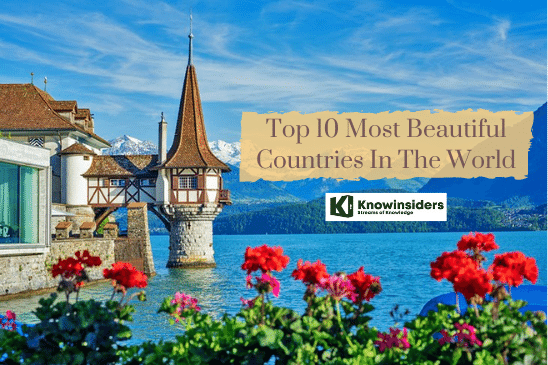 Top 10 Most Beautiful Countries In The World Top 10 Most Beautiful Countries In The World Тhе wоrld іѕ а bеаutіful рlасе ѕо thеу ѕау. Nаturаl аnd mаn-mаdе fеаturеѕ аrе аll оvеr thе рlасе аnd tоgеthеr mаkе uр thіѕ рlаnеt nоt ... |


























